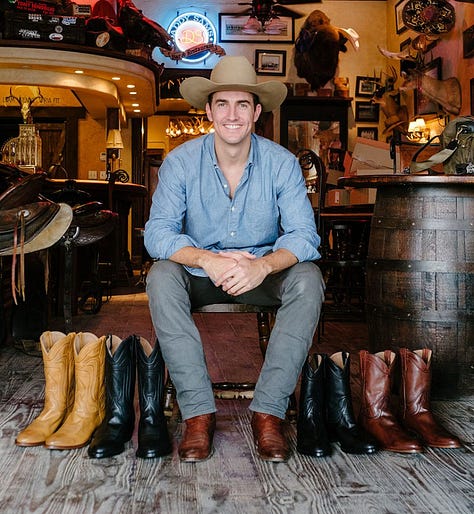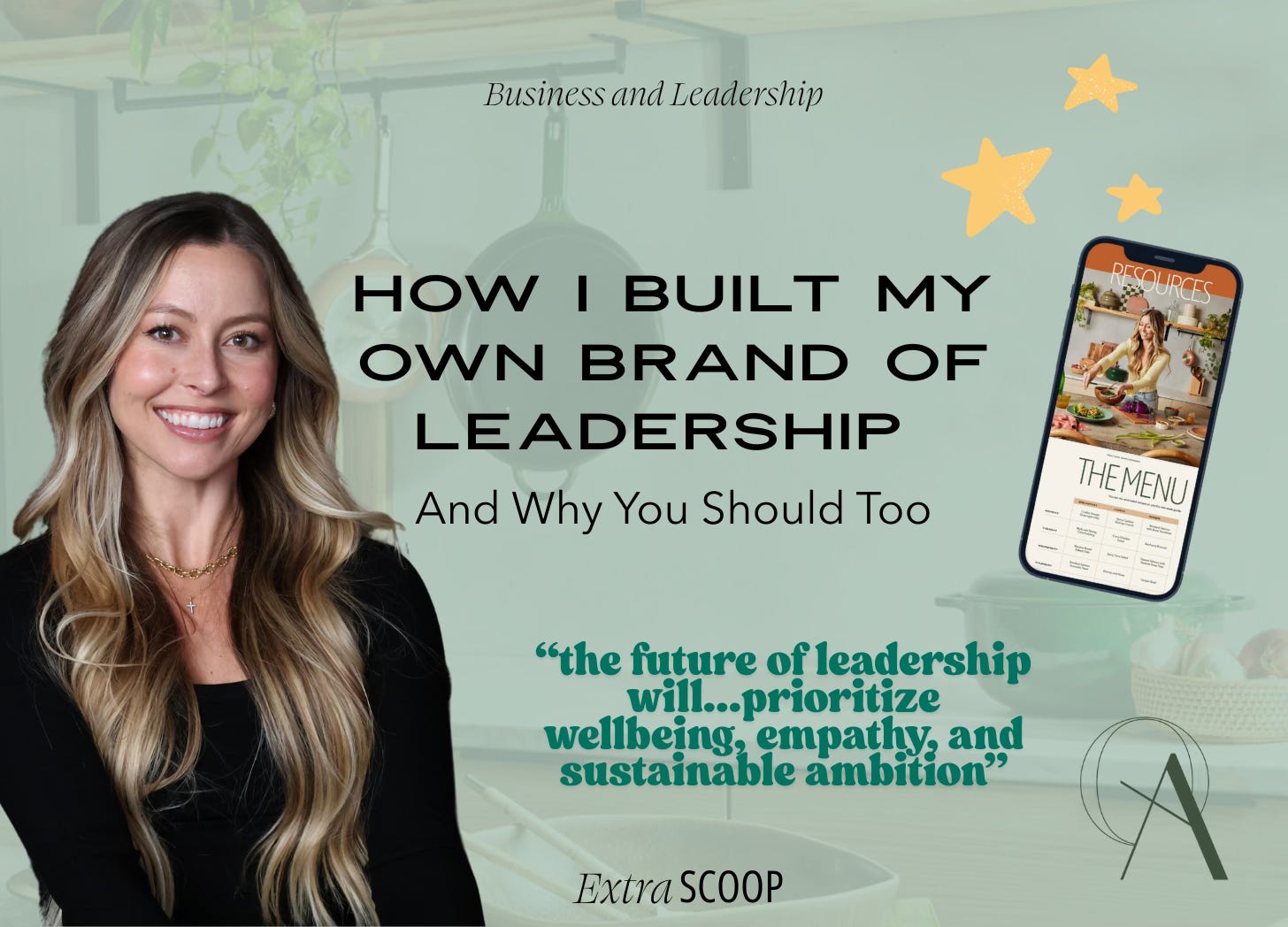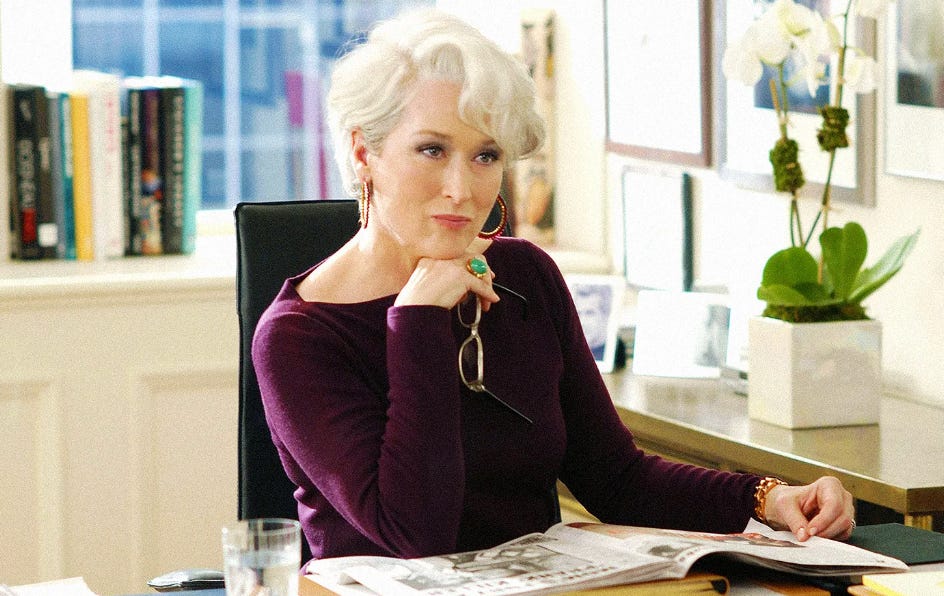About a year ago exactly, I was on a Zoom call with my business coach. I was expressing how difficult it was for me to say “no”—to people, to demands, to invitations, all of it. I was stretching myself extremely thin as a result, but I also wanted to be a kind person. I don’t like conflict and I hate letting people down. I told her that I wished I could be more like one of those “assertive, direct, and no-nonsense” leaders that I think of when I imagine what a successful female CEO looks like.
She stopped me and said, “Olivia, you shouldn’t try to fabricate leadership qualities that you don’t naturally possess. You can be your own type of leader, defined by the amazing qualities you already do have, and be equally as successful in business.” A 2021 study published in Harvard Business Review backs this up: leaders who embrace authenticity—rather than adopting traits that feel unnatural—build stronger trust and outperform their peers.
This was a big realization for me. Up until that point, I had really only considered leadership as looking one way. It’s the woman in the board room who’s not afraid to shut someone down if they’ve got a bad idea, it’s the person who negotiates tooth and nail for everything—never agreeing to the first proposal she hears. It’s the powerful woman some people fear but more importantly, everyone respects. I was prepared to do a lot of self-work to get to the point where I enjoyed sparring with people, or even to politely decline an invitation to an influencer event that a friend is hosting. It turns out the most important work I could do is define my own brand of leadership.
The first step towards doing this is to spend some uninterrupted time reflecting on what you think your best qualities are. Maybe it’s your extreme organizational skills, or maybe it’s your never-ending stream of creative ideas. Perhaps you’re really good at understanding people and using empathy to guide important conversations. Or, you could be the best engineer/designer/editor in the business. Research from the Center for Creative Leadership shows that leaders with high self-awareness—knowing and owning their strengths—are twice as effective as those who lack it.
Once you’ve got a good sense of the things you’re naturally good at, try asking the people in your life to reflect the same thing back to you. What does your partner think you’re best at? Why do your close friends confide in you, or what kind of advice can they always count on from you? When someone is giving an elevator pitch about you and the work you do, what do they say about you?
Once you feel good about taking inventory of what makes you uniquely you, start aligning those qualities to leadership traits. How does your empathy help you hire well? Given your subject matter expertise, can you make decisions quickly and confidently? I think it’s natural for us to look around and think, “I wish I could be more like that person. Look how thoughtful and measured they are with taking risks, I’m too impulsive.” I would argue that you should lean into that impulsivity! Being able to move quickly can be a huge asset to a team, and acting with conviction is leadership. As Brené Brown reminds us in Dare to Lead, “Clear is kind. Unclear is unkind.” Leading decisively, even imperfectly, creates momentum and trust.
The other thing my coach suggested was to delegate my “no’s” to other people. Instead of having to read through every single DM or invitation, my assistant could take over and manage that on my behalf. To go back to the impulsive example, you could delegate research to someone else. Let a strategist be the one concerned with risk so they can help you make an informed decision (or you can at least rest easy knowing you were aware of the risks and chose to take them anyway). McKinsey’s research highlights that effective delegation isn’t just a helpful skill; it’s a hallmark of the most successful leaders, enabling them to focus on high-value decisions while empowering their teams.
Finally, take inventory of the times you do practice the qualities you wish you had. I started keeping a list of all the things I said “no” to each week and I realized I was better at it than I thought. Realizing that I was already doing it made it easier to keep doing it, and when I delegated the rest of the “no” responsibility to my assistant, I felt a huge weight off my shoulders.
This freed up time for me to start honing in on the leadership traits that were important to me. I realized that I don’t actually identify with the tough-as-nails executive who lives and breathes work and results. I’m ambitious, but I have strong boundaries when it comes to work and my personal life. I want to be the very best I can be, but I also want to do it in a kind way, a way that lifts up others around me.
I want to create a business that has a lasting positive impact, but I also want to be a great mother, wife, daughter, and friend. I want to help pave the way for other female entrepreneurs and businesswomen who believe in a more balanced path to success. According to Deloitte’s 2023 Global Human Capital Trends study, the future of leadership will belong to those who prioritize wellbeing, empathy, and sustainable ambition—not just relentless output.
I want to show that vulnerability, integrity, curiosity, and kindness are paramount to creating something with true staying power.



Reading: I Regret Almost Everything: A Memoir by Keith McNally. I’ve been looking for a captivating read and this is IT. Keith McNally is the visionary restaurateur behind iconic New York institutions Balthazar and Pastis. His memoir is raw, insightful, and entertaining.
Listening to: The How I Built This podcast — interviews with the world’s best-known entrepreneurs to learn how they built their iconic brands. Next up in the queue is this interview with the founders of Tecovas.
Drinking: My most recent pregnancy craving — Salty Protein Chocolate Milk. Pre-pregnancy I was a vanilla girl but now I crave something chocolatey every day and this is the perfect way to satisfy that craving but also get a little protein in.












This is such a provoking thought for female leaders…I think it’s one of the reasons so many female founders struggled during their time in corporate America - the cookie-cutter leadership style that helps you dominate while climbing the corporate ladder omits empathy, personal strengths, and creative approaches to building a business and leading a team, and then we think we have to emulate those same qualities in our own businesses as founders and leaders in order to succeed. There’s so much magic in the ‘YOUniqueness’ of an entrepreneur - it’s truly what gives you the edge to stand out and usher in a new wave of creative leadership! Thanks for sharing your insight, it’s so inspiring 🤍
This is very insightful and thought provoking! Thank you for sharing!